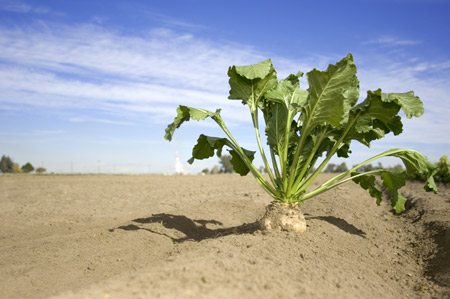Sugar prices bounce as Brazilian output falters
Category: Sugar
 (Agrimoney) – Raw sugar futures bounced after Unica flagged a sharp decline in production of the sweetener in Brazil’s key Centre South region, tallying with concerns of a “sudden death” to the cane crushing season.
(Agrimoney) – Raw sugar futures bounced after Unica flagged a sharp decline in production of the sweetener in Brazil’s key Centre South region, tallying with concerns of a “sudden death” to the cane crushing season.
Sugar output in the Centre South, responsible for some 90% of domestic production, came in at 2.50m tonnes during the first half of September, the cane industry group said.
That was down 15.9% on output in the last half of August, and a drop of 17.1% year on year.
And it reflected, besides an enhanced preference by mills for turning cane into ethanol, a sharp reduction in crop volumes – a dynamic which Unica, and many other analysts, have long forecast, but of which there has been little evidence before now.
‘Sudden death’
The concerns over cane stem from the impact of persistent drought in the Centre South which, while elevating concentrations of sugar in cane, and allowing speedy harvesting, has hurt yields.
Unica has maintained that the drought has left mills with insufficient cane to last the whole season, which typically winds up around late November-early December, foreseeing instead a premature close which many analysts have termed a “sudden death”.
In the first half of September, cane crushing volumes dropped to 39.9m tonnes, down 7.4% on those in the second half of August, and down 16.0% year on year.
Antonio de Padua Rodrigues restated on Wednesday that “in the coming months, with the early termination of the crop in several regions, the impact of drought on production will become more evident”.
On New York’s futures market, raw sugar for March 2015, the best-traded contract – which was showing small losses before the data – revived to stand at 15.90 cents a pound an hour later, up 1.1% on the day.
‘Situation is not sustainable’
Separately, Job Economia, the Brazil-based consultancy, also offered support for sugar prices by saying that values of the sweetener had fallen too far – both compared with ethanol and in absolute terms, falling short of production costs.
This was particularly true of semi-processed, VHP raw sugar for the export market, which was trading at an 11% discount to prices for domestic consumption.
“This product is currently looked at as a byproduct of the sugar cane industry in Brazil,” the consultancy said.
“This situation is not sustainable over the medium term.”
Centre South mills are receiving a 7% better return for making anhydrous ethanol (the type mixed with gasoline) than sugar for the domestic market, Job Economia added




